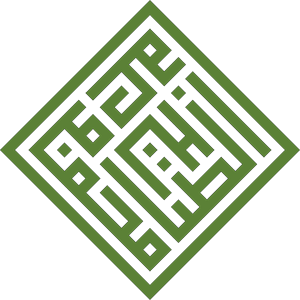LNS 102 W b
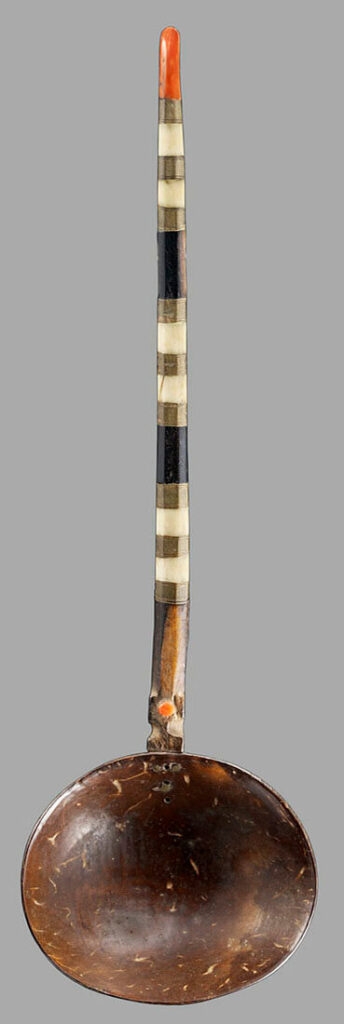
Group of ten luxurious spoons made, variously, of coral, mother-of-pearl, ivory, tortoise shell, horn, coconut shell and wood, and with silver and copper elements
LNS 102 W a

Group of ten luxurious spoons made, variously, of coral, mother-of-pearl, ivory, tortoise shell, horn, coconut shell and wood, and with silver and copper elements
LNS 62 W
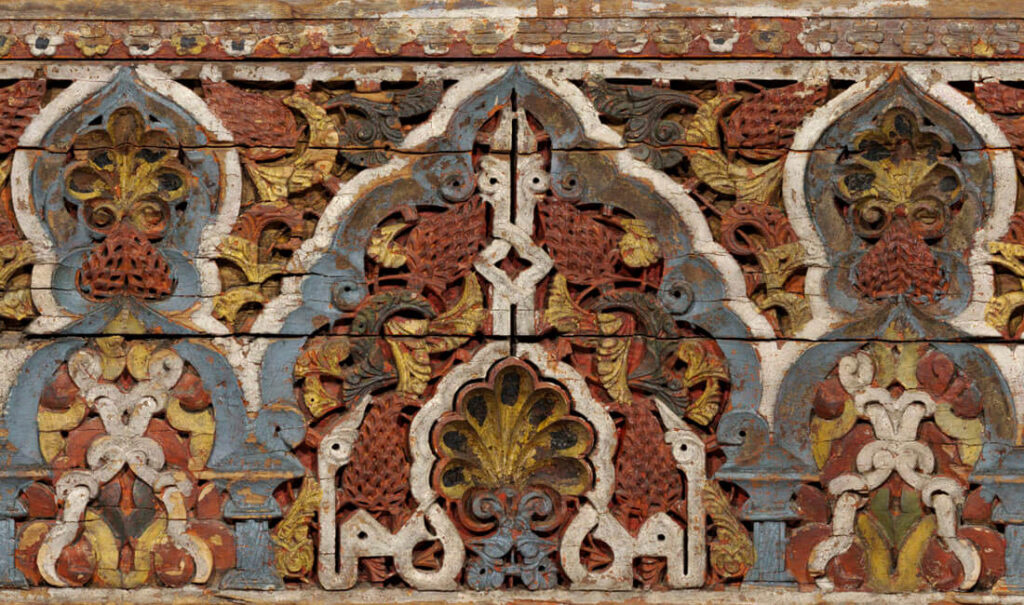
Wooden frieze, probably from a palace, with a series of elaborately cusped arches containing mirrored repetitions of the word ‘happiness’ (al-Yumn) in Kufic script
LNS 46 W

Wooden niche-head with carved foliate designs and muqarnas squinches lining the interior of the arch
LNS 35 W
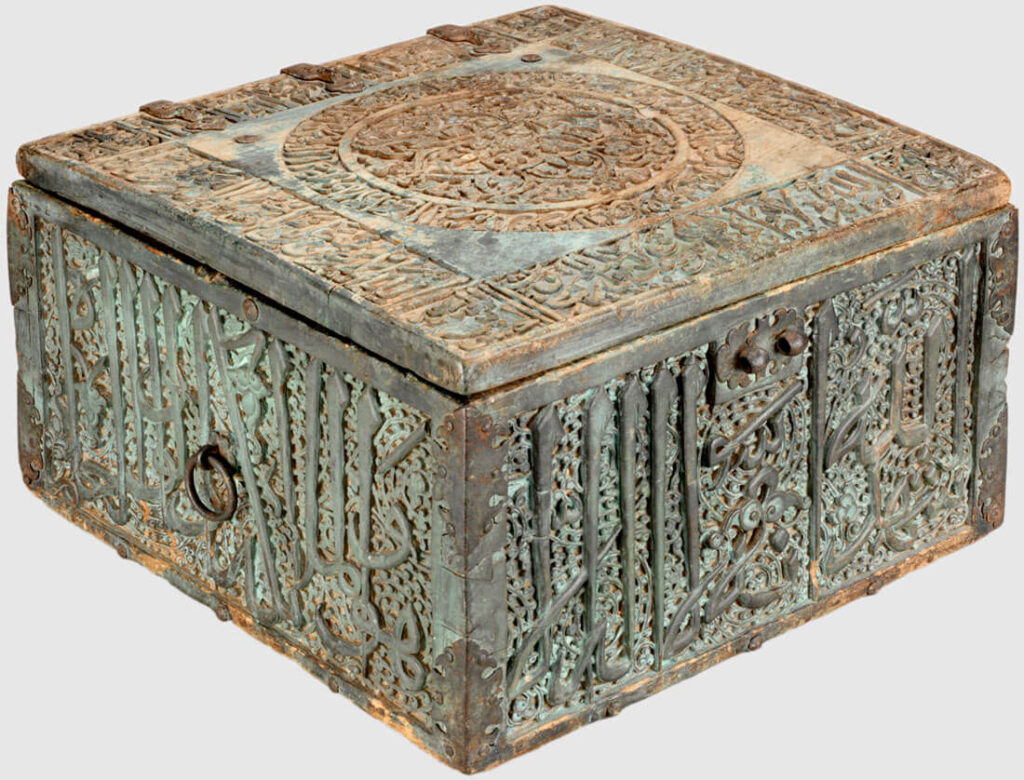
Featuring thuluth and naskhi inscriptions providing an extraordinary wealth of information, in addition to two passages from the Qur’an: the name and titles of the man (‘Izz ad-Din Malik son of Nasir-Allah Muhammad) who endowed it for the tomb of the deceased, Fakhr ad-Din Chupan, and the date of his death; the signature of the artist, al-Hasan, son of Qutlu Beg, and his patronymics, showing that he was the grandson of the deceased
LNS 194 W
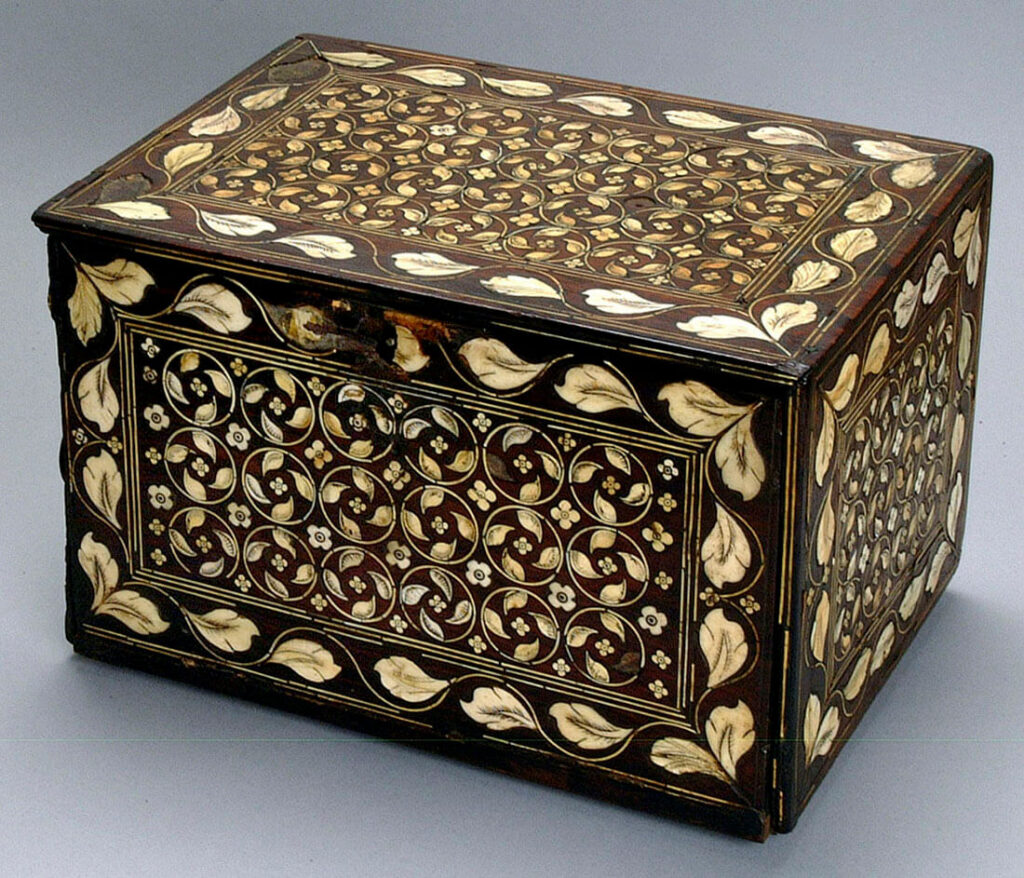
Wooden box with hinged drop-down front for access to the internal drawers, inlaid in floral motifs of ivory and bone (with internal engraved and stained details) against the dark wood field
LNS 240 W a,b
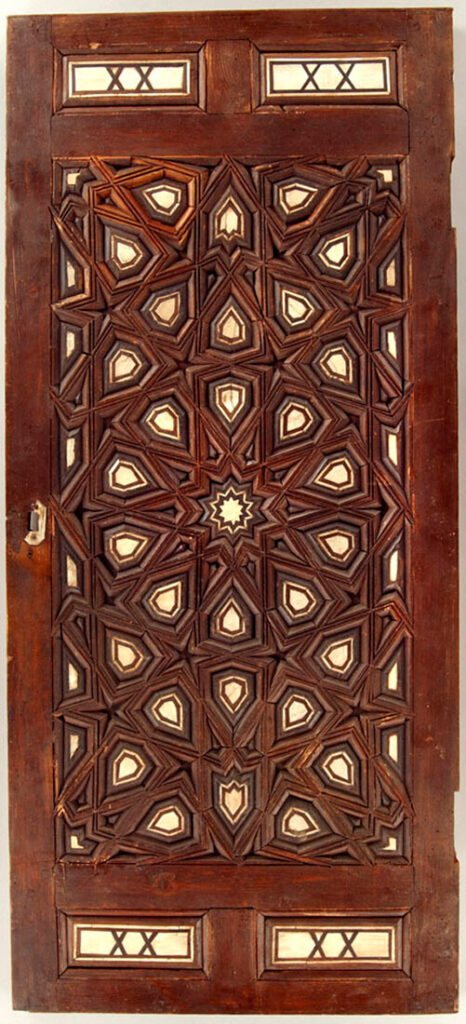
Pair of wooden shutters or cupboard door leaves inlaid with bone, featuring an infinite-repetition geometric star pattern (pentagonal lozenge plan of repetition, ten-pointed stars and other polygons)
LNS 191 W
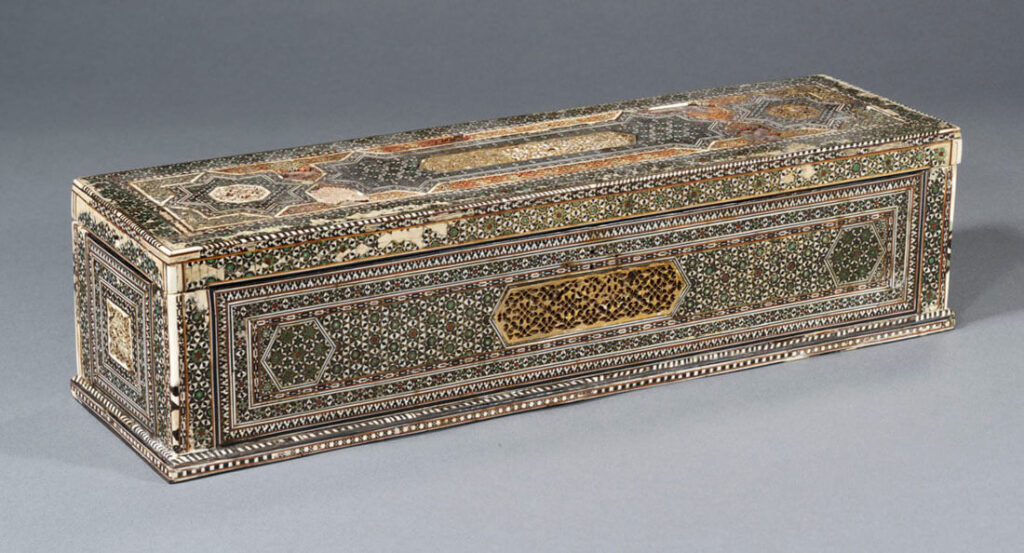
Wooden marquetry kit-box for a calligrapher inlaid with wood, ivory and dyed bone and inlaid with gold-painted ivory panels
LNS 3 W a-c
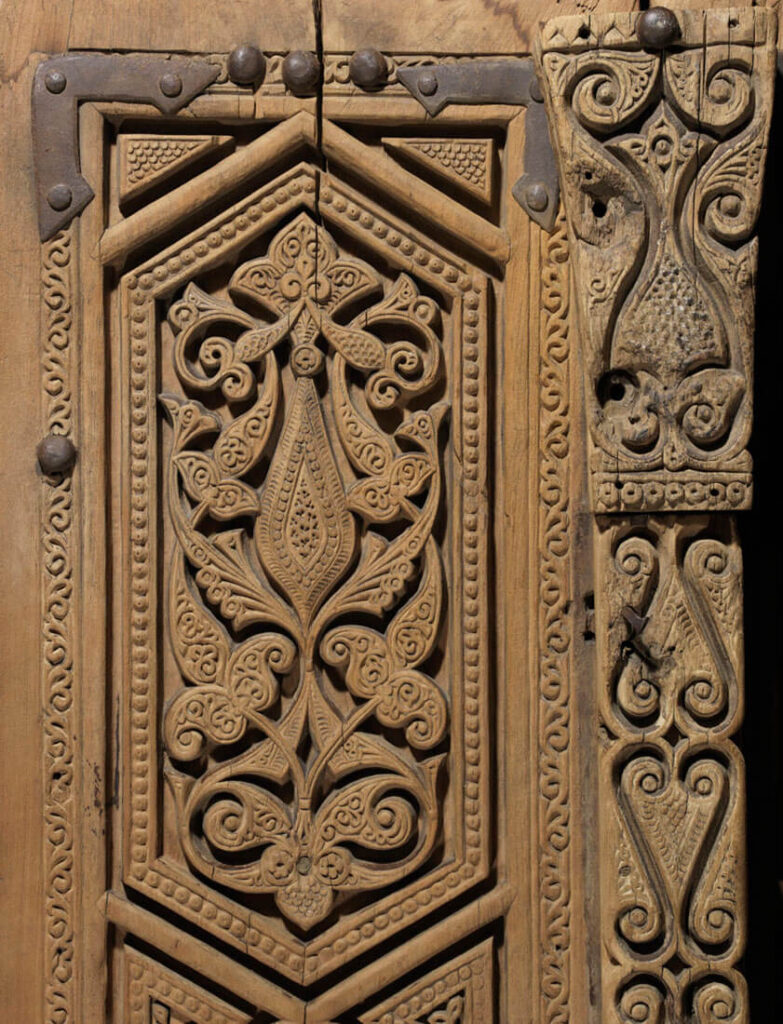
Wooden door (two leaves and centre-post); the panels deeply carved with hexagonal compartments filled with leafy half-palmette arabesques, their surfaces further detailed with scrolls and geometric patterns; the post carved with a pattern of calyxes and half-palmettes in ‘bevelled style’
LNS 8 W
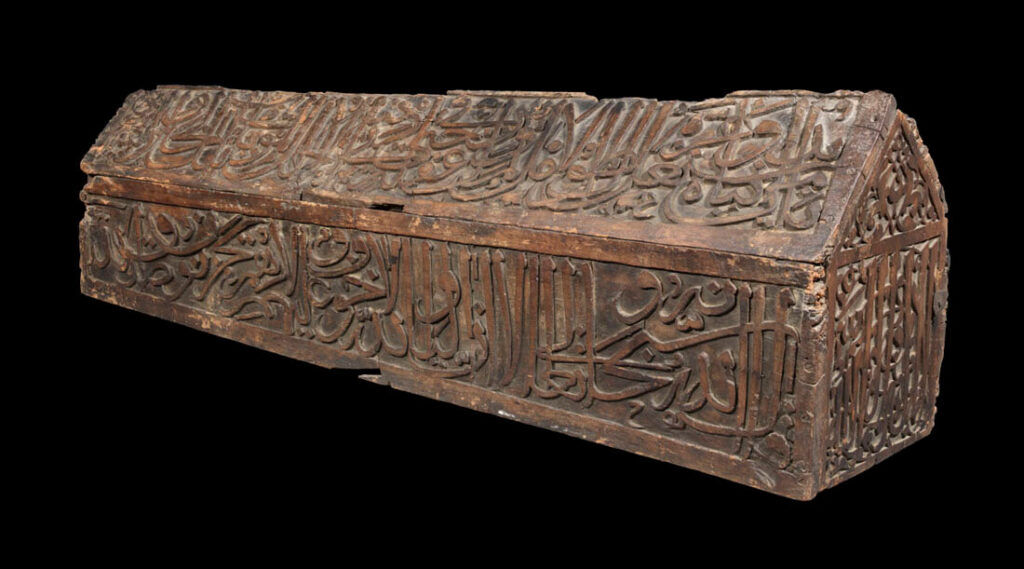
Wooden cenotaph covered in religious inscriptions (in thuluth script) of reassurance, including one from the Qur’an (chapter 2, verse 38)
